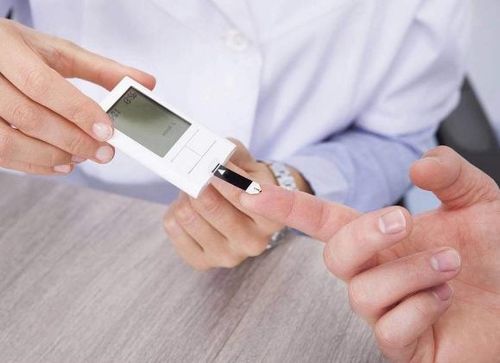Coenzyme Q10 - also known as CoQ10, is a compound that your body can naturally produce. CoQ10 plays many important roles in the body, notably providing energy and protecting the body from oxidative cell damage. People can take Coenzyme Q10 as a supplement with the aim of treating various health conditions and diseases.
1. What is CoQ10?
CoQ10 is a fat-soluble antioxidant found in human cells, primarily within mitochondria. Mitochondria—often referred to as the powerhouses of the cells—are specialized structures that produce adenosine triphosphate (ATP), the primary energy source for cellular activities.
There are two different forms of CoQ10 in your body: ubiquinone and ubiquinol. Ubiquinone is converted into ubiquinol in the body, which is then easily absorbed and utilized.
The body can naturally produce CoQ10. However, certain factors may reduce its levels. For instance, CoQ10 production decreases significantly with age, heart conditions, and cognitive decline. Other causes of reduced CoQ10 levels include the use of Statin medications, nutrient deficiencies, genetic mutations, oxidative stress, and cancer.
Additionally, taking Coenzyme Q10 can be obtained from dietary sources such as eggs, fatty fish, organ meats, nuts, and poultry. Supplementing with CoQ10 can alleviate health issues caused by a deficiency of this compound. Moreover, because it is associated with energy production, CoQ10 supplements have been shown to improve athletic performance in athletes and reduce inflammation in healthy individuals without a deficiency.
2. Dosage of CoQ10
The recommended dosage of Coenzyme Q10 is 90–200 mg per day. However, this dosage may vary depending on the individual and the condition being treated.
3. Use of Statins
Statins are a group of medications that reduce cholesterol or triglyceride levels in the blood to prevent heart disease. Although statins are generally well-tolerated, they may cause adverse side effects, such as severe muscle injury and liver damage. Statin use also significantly decreases CoQ10 levels in blood and muscle tissues.
Research has shown that CoQ10 supplementation helps reduce muscle pain in individuals taking statins.
A study involving 50 statin users found that a daily supplement of 100 mg of CoQ10 for 30 days reduced muscle pain caused by statin side effects in 75% of patients. For those taking statins, the recommended CoQ10 dosage is 30–200 mg per day.
4. CoQ10 and Heart Disease

In individuals with heart disease, such as heart failure and angina, CoQ10 supplementation has shown promising results. A review of 13 studies involving individuals with heart failure found that taking 100 mg of CoQ10 daily for 12 weeks improved blood flow to the heart.
Additionally, CoQ10 supplementation has been shown to reduce the number of hospitalizations and the risk of death due to heart-related complications in people with heart failure.
CoQ10 has also demonstrated effectiveness in alleviating pain associated with angina, caused by inadequate oxygen supply to the heart muscle. Moreover, supplementation may reduce risk factors for heart disease, such as lowering levels of "bad" LDL cholesterol.
For individuals with heart failure or angina, the recommended CoQ10 dosage is 60–300 mg per day.
5. CoQ10 and migraines
When used alone or in combination with other nutrients such as magnesium and riboflavin, CoQ10 has been shown to alleviate migraine symptoms. CoQ10 can also reduce headaches by mitigating oxidative stress and the production of free radicals, which are major contributors to migraines.
CoQ10 helps reduce inflammation in the body and enhances mitochondrial function, which may ease migraine-related pain. A three-month study involving 45 women demonstrated that those treated with 400 mg of CoQ10 daily experienced significant reductions in the frequency, severity, and duration of migraines compared to a placebo group.
To treat migraines, the typical recommended dosage of CoQ10 is 300–400 mg per day.
6. CoQ10 and aging process
As mentioned earlier, the body's natural production of CoQ10 declines with age.
Fortunately, CoQ10 can be replenished through dietary supplements, helping to enhance your quality of life.
Older adults with higher CoQ10 levels in their blood tend to be more physically active and experience lower oxidative stress levels, which helps prevent heart disease and cognitive decline.
Supplementing with CoQ10 has been shown to improve muscle strength and physical performance in older individuals. To combat age-related decline, the recommended dosage is 100–200 mg of CoQ10 daily.
7. CoQ10 and Diabetes

Oxidative stress and mitochondrial dysfunction contribute to the onset and progression of diabetes and its complications. Additionally, individuals with diabetes may naturally have lower CoQ10 levels. The use of certain antidiabetic medications further depletes CoQ10 stores in the body.
Studies indicate that taking Coenzyme Q10 helps reduce the production of free radicals, which are unstable molecules that can harm your health when present in excessive amounts.
Supplementing with CoQ10 has also been shown to improve insulin resistance and regulate blood sugar levels in people with diabetes. A 12-week study involving 50 individuals with diabetes demonstrated that participants who received 100 mg of CoQ10 daily experienced significant reductions in blood sugar levels, oxidative stress markers, and insulin resistance compared to the control group.
A daily dosage of 100–300 mg of CoQ10 has proven effective in improving diabetes symptoms.
8. Improving Fertility
Oxidative damage is a major factor contributing to infertility in both men and women, as it negatively impacts sperm and egg quality. For example, oxidative stress can cause DNA damage in sperm, leading to male infertility or recurrent miscarriage.
Supplementing your diet with antioxidants, including CoQ10, may help reduce oxidative stress and enhance fertility in both sexes.
Daily supplementation of 200–300 mg of CoQ10 has been shown to improve sperm count, density, and motility in men with infertility issues.
Similarly, CoQ10 supplements may improve female fertility by stimulating ovarian response and slowing ovarian aging. An effective dosage for women ranges from 100–600 mg per day.
9. Enhancing Exercise Performance
Since CoQ10 is involved in energy production, it is commonly used by athletes and those looking to improve physical performance. Supplementing with CoQ10 helps reduce inflammation related to intense exercise and speeds up recovery.
A 6-week study on 100 German athletes found that those who supplemented with 300 mg of CoQ10 daily showed improved physical performance (measured by power output) compared to the placebo group.
CoQ10 has also been shown to reduce fatigue and increase muscle strength in non-athletes. The recommended daily dose of CoQ10 for exercise performance is 300 mg.

10. Side Effects
CoQ10 is generally well tolerated, even at high doses greater than 1,000 mg per day. However, some people may experience side effects including:
- Diarrhea, headaches, nausea, and skin rashes
- Insomnia: Taking CoQ10 close to bedtime can cause insomnia in some people, so it is best to take it in the morning or afternoon
- Drug interactions: CoQ10 supplementation may interact with certain medications, including blood thinners, antidepressants, and chemotherapy drugs
- It should be taken with a meal or snack containing fat, as CoQ10 is fat-soluble
Besides, Be sure to purchase supplements that provide CoQ10 in the form of ubiquinol, which is the most easily absorbed form
At Vinmec International General Hospital, with its modern medical facilities and experienced medical team, patients can confidently seek consultations and treatments.
To arrange an appointment, please call HOTLINE or make your reservation directly HERE. You may also download the MyVinmec app to schedule appointments faster and manage your reservations more conveniently.
Reference source: healthline.com
MORE
What is Cetrimide? Uses and dosage Notes on safe and reasonable antibiotic use. How long after spraying can Chloramin B be used?







